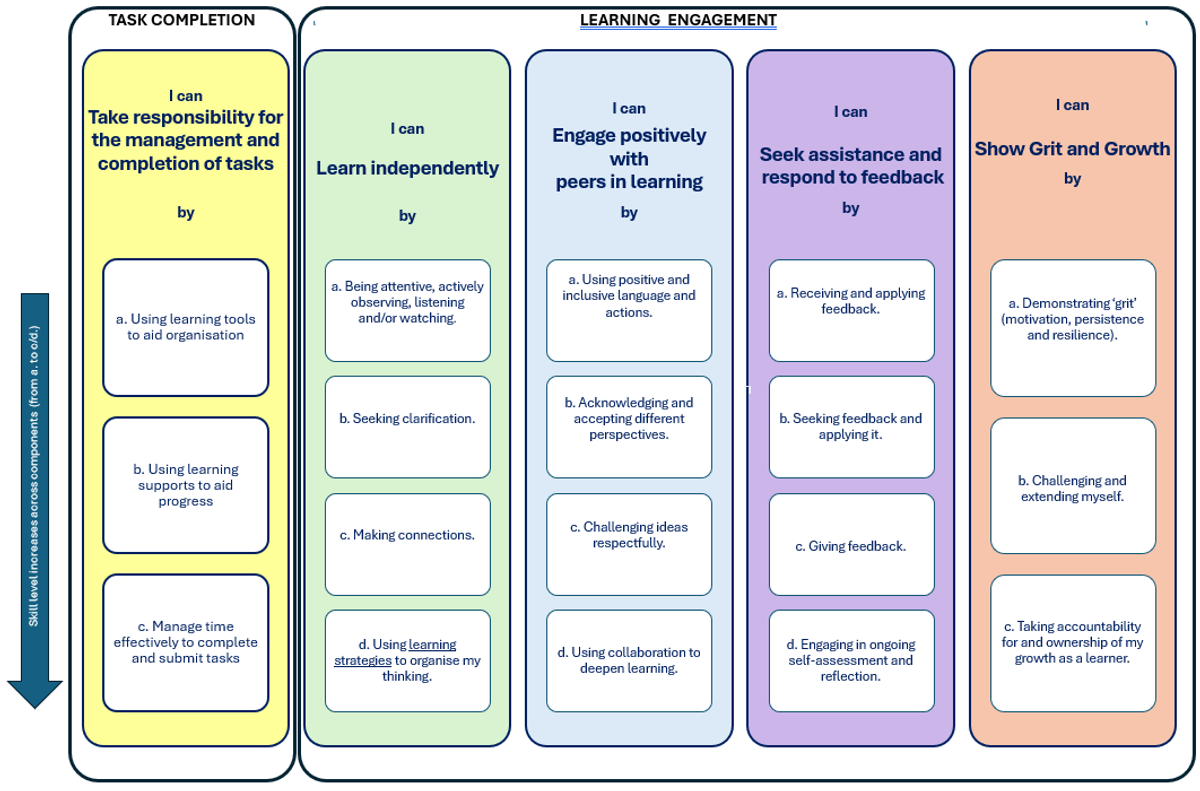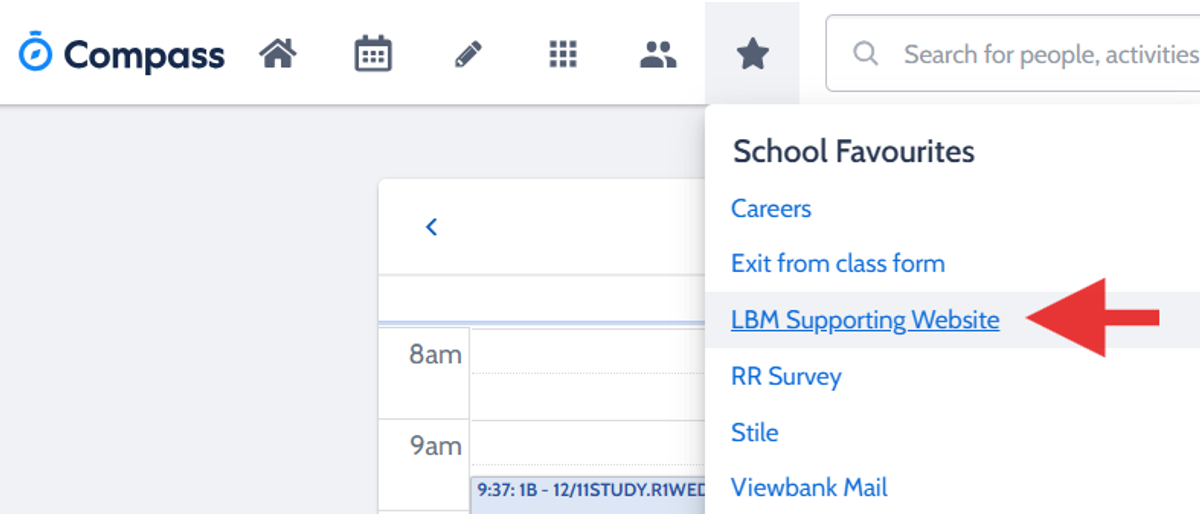Explaining our Learning Behaviours Continuum.

Learning behaviours are transferable, lifelong skills that are utilised by everyone to be successful
The Learning Behaviour Continuum has been updated in 2025! Check out this video for an overview: https://www.youtube.com/watch?v=UIOodoSEzP8-
Learning Behaviour Continuum Overview
Students and staff have co-created the Learning Behaviour continuum to support everyone to grow their skills to engage positively in their learning at school, outside of school and beyond. Learning behaviours are transferable, lifelong skills that are utilised by everyone to be successful, whatever role that they find themselves doing.
At multiple points during the year, students reflect on their learning behaviours, evaluate themselves against the continuum and set actionable next steps. Teachers also make judgements on interim and semester reports. Teachers support students in class to develop their learning behaviours.
Our focus this time (again): Learning independently
These behaviours describe what you do when you`re taking in information or ideas and making sense of them by thinking about how they build on what you already know or can do. Beyond school, this provides you with the metacognitive tools and strategies to adapt to problems, small and big, when you encounter them and need to respond.
Metacognition is one of the biggest words we`ve used in this series so far. It refers to being aware of what it is that you`re experiencing, for example, are you being challenged and finding it difficult right now, or not being challenged enough, or recognising when you`re stuck, and in each case, being able to respond appropriately. It involves monitoring and evaluating your own learning experiences so that you can take proactive next steps. Metacognition empowers students to become more active and strategic learners.
Specifically, this time, we`re focusing on the ‘micro-behaviour’ b. Seeking clarification
AT SCHOOL, this behaviour is about recognising that it`s OK to be unsure about what you need to do next. The next logical step is to find out what you need to do next, and there are lots of people and resources that might be able to help you with this, allowing you to move forward.
With exams coming up for students in Year`s 9, 10, 11 and 12, seeking clarification around how to apply skills and concepts as you revise and identify areas of uncertainty would be really timely. Reaching out to your peers and asking them questions, posting a message on class Teams pages or messaging your teacher directly would all be examples of this learning behaviour. Of course, these behaviours can happen at any time during learning, in any year level.
BEYOND SCHOOL, being able to ask someone else when you`re unsure is a transferable, lifelong skill. This could relate to the very next thing you need to do, or something that`s in the back of your mind the keeps popping up and is bugging you. Either way, this skill allows you to move forward productively by asking someone else. They may be able to answer your question - great. They may not be able to answer your question, but now you know that it wasn`t just you that was uncertain!
Here is what this micro-behaviour can look like at each level of the Positive Learning Behaviour Continuum.
Students can access additional supporting resources on the ‘LBM Supporting website*’, accessible via the Compass -School Favourites menu (Star at top right). This resource allows students to pinpoint their current level and provides example strategies to grow this learning.
*This is an internal website – accessible to students and staff only – ask your young person to show you.
If you have any specific, additional examples of what this behaviour can look like, or examples of where it is used, we would really like to hear from you. If you have any additional suggestions, questions or wonderings around this behaviour, or the Learning Behaviour Continuum itself, please email learningbehaviour@viewbank.vic.edu.au and we`ll be in touch.
John Patterson





